As one of very few Serbs to fight on the side of the Bosnian Army, Jovan Divjak cannot take 10 steps in Sarajevo without being warmly greeted by people who respect the former general for defending the city and its multiculturalism.
However, his vision for a cosmopolitan, multiethnic, multireligious Bosnia and Herzegovina seems further away than ever, with the country more divided now than two decades ago.
“Today there is more hatred among young people than there was during the war,” Divjak told reporters.
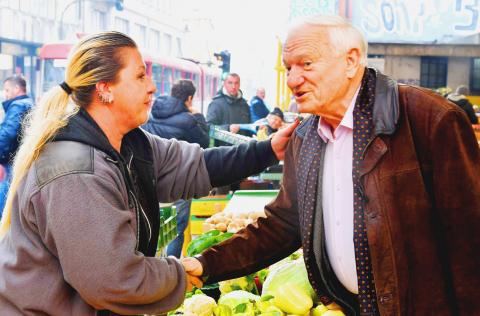
Photo: AFP
Tomorrow, a UN war crimes tribunal is to hand down a verdict to Ratko Mladic, the Bosnian Serb military chief who laid siege to the city in the bitter 1990s war — but the judgement will only emphasize to Divjak how the country, in his view, lost a bigger battle.
The Bosnia that Divjak wants to belong to “will never exist,” he said, adding that the forces of Mladic had won.
When the conflict broke out in Sarajevo in April 1992, Divjak, a retired Yugoslav army officer, was a member of Bosnia’s territorial defense forces.
He immediately joined the ranks of those defending Sarajevo, which was trapped under siege for 44 months. At least 10,000 residents of the city were killed during the war.
However, Divjak hates the “good Serb” label.
“It was natural to be with those who were attacked, who did not have weapons,” he said.
The conflict ended with a peace deal that divided Bosnia into two semi-independent entities: the Serb-run Republika Srpska and a federation dominated by Bosnian Muslims, known as Bosniaks, and Croats.
Sarajevo’s Serb and Croat population has shrunk from one-third of the population before the war to just 9 percent today.
Divjak is among 3 percent of Bosnians — and 6 percent of Sarajevo’s residents — who refuse to define themselves by ethnicity.
They are the “others,” a tiny statistical category that stands as a reminder of Sarajevo’s multicultural past.
“It is a battle. We have to fight, even at 3 percent,” Divjak said.
Like 74-year-old Mladic, Divjak comes from a Bosnian Serb family, but was born in Belgrade, as his father was a travelling teacher.
Both officers considered themselves Yugoslavs before the federation began to collapse in the early 1990s — and for both men, late Yugoslav leader Josip Broz Tito was a central figure.
However, the similarities end there.
Divjak does not hide his disdain for Mladic, recalling him as “arrogant, sometimes drunk,” when they met during wartime negotiations.
“He would say that he did not want to talk to a Muslim delegation that included a Serb who betrayed Serbs,” Divjak said.
Divjak’s name deeply upsets Janko Seslija, a 57-year-old Serb war veteran whose “White Wolves” commando unit was based in the Bosnian Serb stronghold of Pale.
“Traitor. For me he is a traitor,” Seslija said.
That Divjak fought “in his country against his own people... It’s a shame,” Seslija added.
Divjak is still threatened by an arrest warrant issued by Serbia, on which he was held in Vienna in 2011.
He was allowed to return to Bosnia almost five months later when an Austrian court rejected Belgrade’s extradition request.
Serbia wants Divjak over a 1992 attack on a retreating Yugoslav army convoy in Sarajevo.
Belgrade says 18 soldiers were killed, Divjak says six.
The ex-general denies the allegations and insists that he ordered the shooting to stop, a claim that seems to be backed up by television footage from the time.
Near the demarcation line between Bosnia’s two entities is the educational foundation set up by Divjak, which has awarded scholarships to 6,500 students since 1994.
It is open to everyone, but Serbs are rarely interested — they do not want to be linked to Divjak.
Bosniak authorities are also cautious toward the man who loudly voices his concerns over growing nationalism, and the influence of Islam on politics and society in the small Balkan country.
Divjak has repeatedly condemned war crimes against Serbs.
In 1999, he symbolically renounced his rank of general following the grandiose funeral of Musan “Caco” Topalovic, a Bosniak commander and gangster suspected of wartime executions of Serbs.
“One does not learn in Bosniak schools or media that there were crimes on the side of the Bosnian army,” Divjak said.
However, the unconventional Serb said he would repeat the decision he made in April 1992 to defend Sarajevo.
“If it happened again, I would be even more determined today,” he said. “People have esteem and respect for what I did.”
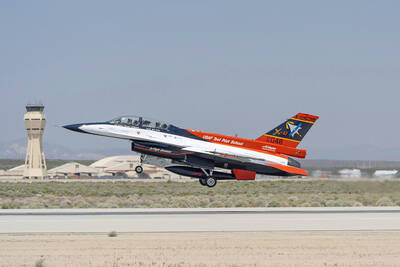
With the midday sun blazing, an experimental orange and white F-16 fighter jet launched with a familiar roar that is a hallmark of US airpower, but the aerial combat that followed was unlike any other: This F-16 was controlled by artificial intelligence (AI), not a human pilot, and riding in the front seat was US Secretary of the Air Force Frank Kendall. AI marks one of the biggest advances in military aviation since the introduction of stealth in the early 1990s, and the US Air Force has aggressively leaned in. Even though the technology is not fully developed, the service is planning
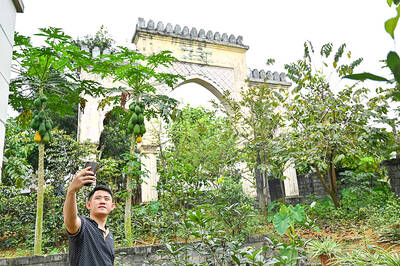
Le Tuan Binh keeps his Moroccan soldier father’s tombstone at his village home north of Hanoi, a treasured reminder of a man whose community in Vietnam has been largely forgotten. Mzid Ben Ali, or “Mohammed” as Binh calls him, was one of tens of thousands of North Africans who served in the French army as it battled to maintain its colonial rule of Indochina. He fought for France against the Viet Minh independence movement in the 1950s, before leaving the military — as either a defector or a captive — and making a life for himself in Vietnam. “It’s very emotional for me,”
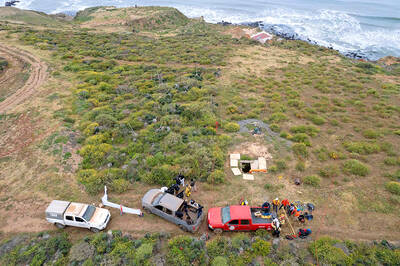
INTERNATIONAL PROBE: Australian and US authorities were helping coordinate the investigation of the case, which follows the 2015 murder of Australian surfers in Mexico Three bodies were found in Mexico’s Baja California state, the FBI said on Friday, days after two Australians and an American went missing during a surfing trip in an area hit by cartel violence. Authorities used a pulley system to hoist what appeared to be lifeless bodies covered in mud from a shaft on a cliff high above the Pacific. “We confirm there were three individuals found deceased in Santo Tomas, Baja California,” a statement from the FBI’s office in San Diego, California, said without providing the identities of the victims. Australian brothers Jake and Callum Robinson and their American friend Jack Carter
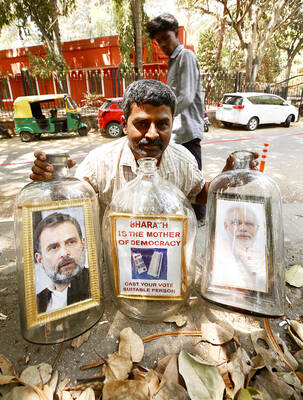
Indian Prime Minister Narendra Modi reaffirmed his pledge to replace India’s religion-based marriage and inheritance laws with a uniform civil code if he returns to office for a third term, a move that some minority groups have opposed. In an interview with the Times of India listing his agenda, Modi said his government would push for making the code a reality. “It is clear that separate laws for communities are detrimental to the health of society,” he said in the interview published yesterday. “We cannot be a nation where one community is progressing with the support of the Constitution while the other